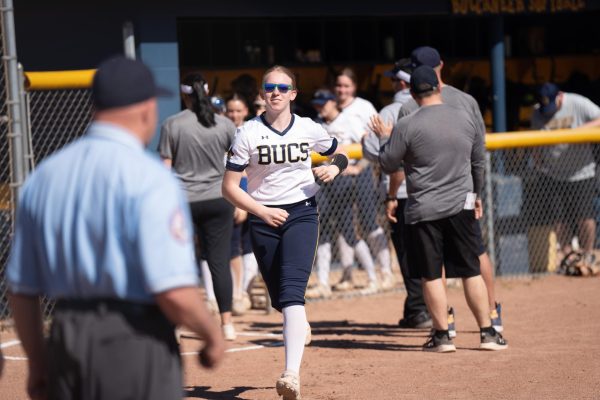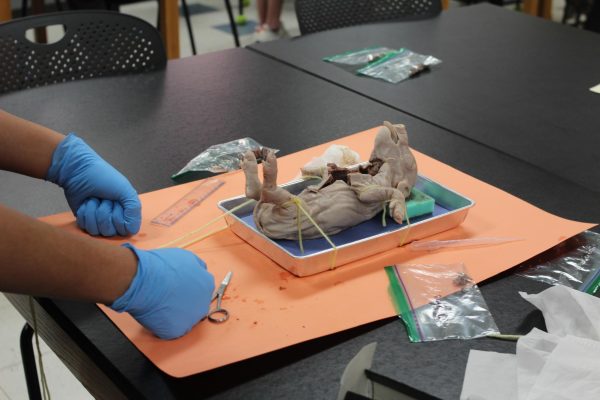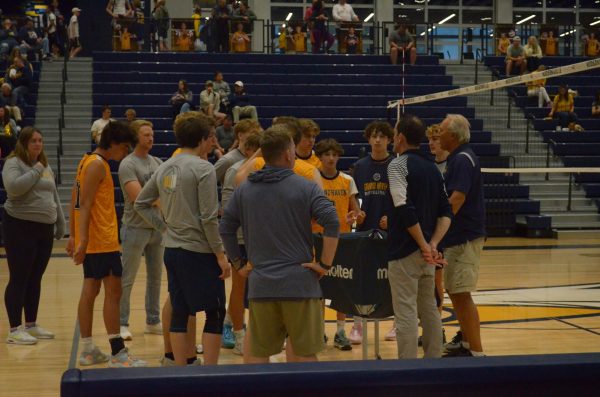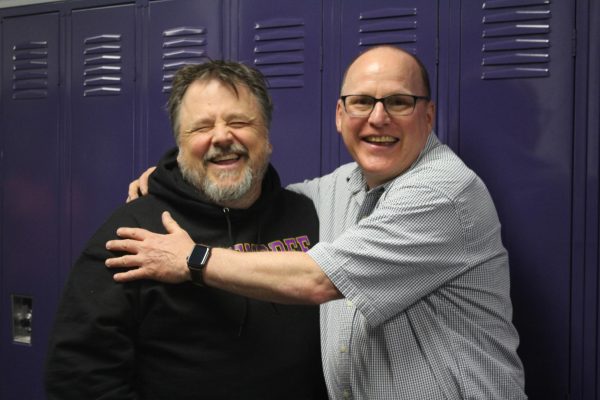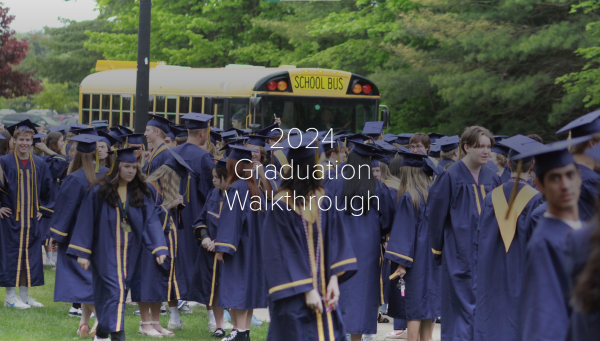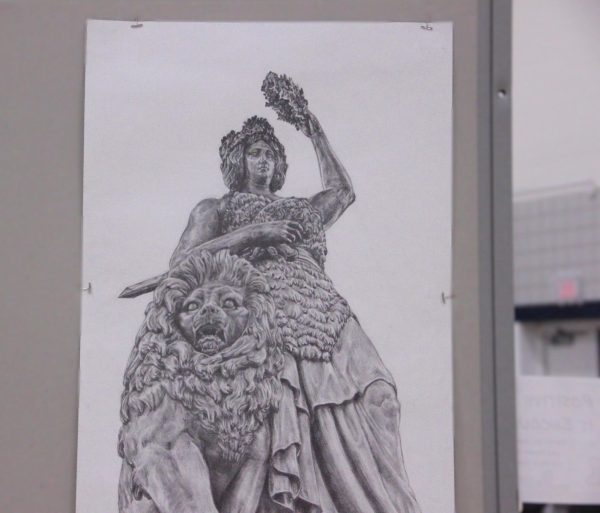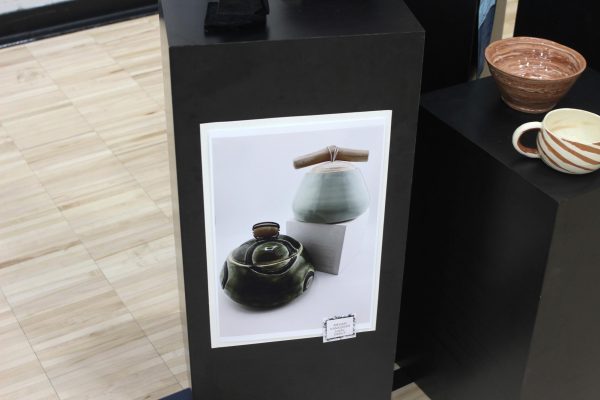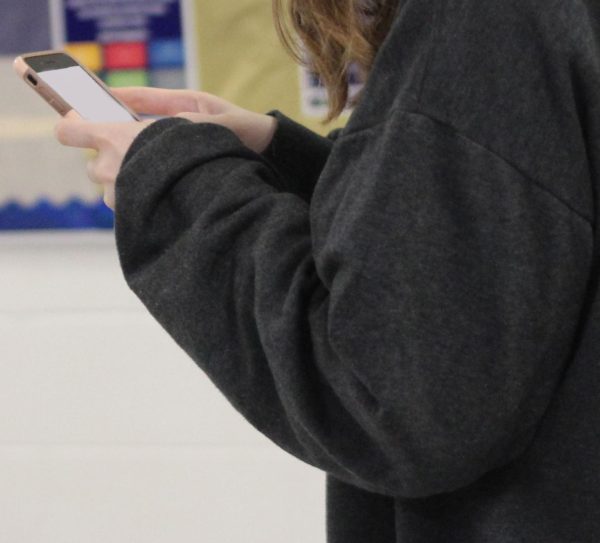FORCED INTO PHYSICS
Curriculum change challenges teachers
Physics teacher Katy Walters stands behind her desk, music playing in the background. Her students, filled with energy, are getting in their last few words before she announces the assignment. Her students adjust their positions. Walters guides them through the days assignment, a “simple machines lab.”
The lab consists of pulleys and wheels, along with an online experiment. Walters does a thorough job making sure her students know how to collect the data and how to use the equipment correctly.
For Walters, a one-year experienced physics teacher, the course challenges her ability to think on the spot and make sure her students can get through it as well.
“I’ve never designed a class from scratch myself before,” Walters said. “This was brand new territory. No one’s ever taught this class. You know, there’s certain requirements the state says we have to teach, but we got to decide how we want to teach them.”
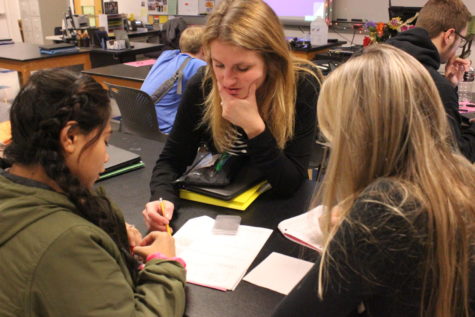
Walters helps engage students in magnetism project.
The new Michigan science standards are a close reflection of what the next generation of requirements will look like. The big change went from a student requirement to take either chemistry or physics to a curriculum where students take a semester of both.
The physics class had already been active for a year, along with an AP course, but a new semester class is more beneficial to students, according to science department chair Dennis Striegle.
The first step into action was figuring out which teachers could teach physics. Teachers should have exposure to the class. The teachers currently assigned to the course are Greg Huizenga, Steffanie Portenga, Scott Stanley, Walters, and Marcella Weldon.
The new physics teachers had to work out how the semester would play out. No one told them it would be easy and some of these teachers had not seen physics since college. Portenga, for instance, was surprised she had to teach physics. She was a biology teacher, not a physics teacher.
“Especially the first time through, it was brand new,” Walters said “So we had no idea how it would go, if the kids would like it, or if it would work. It made sense to us in our head, but we didn’t know if it makes sense to them. So we’ve been tweaking things. And I am not super familiar or confident with the content. So that was a challenge for me too.”
The state curriculum change has made it hard for other teachers as well, like Portenga who is still adjusting as a physics teacher.
Fortunately we have very capable teachers, very intelligent teachers. The science department as a whole does an outstanding job of supporting and helping one another out with ideas and techniques and resources for their teaching to be successful.
— Striegle
“It’s been a challenge,” Portenga said. “Because I haven’t had physics since my sophomore year of college. And even though I had an entire year of it, I don’t remember a lot of it. So I have to relearn some of it before I teach it. So it has been a lot of work.”
The curriculum change has forced some teachers to make drastic changes to their class and do amazing things for their students.
“Fortunately we have very capable teachers, very intelligent teachers,” Striegle said. “The science department as a whole does an outstanding job of supporting and helping one another out with ideas and techniques and resources for their teaching to be successful.”
To make the best out of the curriculum change, Walters, one of the founders of the team, shows her own emotions towards the class itself and knows it can be a struggle for her and her students. She takes the extra step into ensuring that her kids know the material for the class by asking them questions at the end of the semester and during any experiments.
“I’m pretty open with them that physics is not my jam,” Walters said. “We’re kind of in the same boat together with trying to figure stuff out. And then I always do an evaluation at the end of the semester, where they can give me feedback about stuff. Especially last year, since it was the first time. I was frequently asking ‘how do you like packets? How do you like the lab? What do you think? Do we do too much of this?’ So we could manipulate the class and make it as enjoyable as possible.”
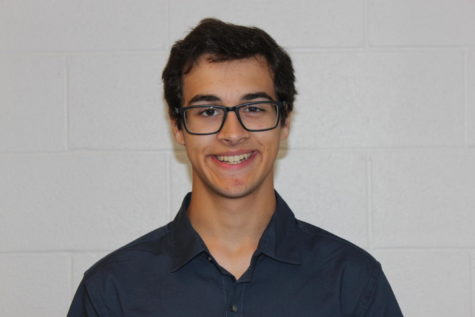
Junior Mike Baldus is starting his second year on the Bucs’ Blade. He is excited to explore the opportunities of being part of the staff and work on...

